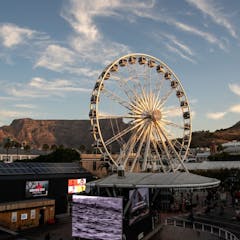
Artikel-artikel mengenai Power cuts
Menampilkan 1 - 20 dari 33 artikel

After 30 years of democracy, South Africa is in a deep electricity crisis which can only be solved if the government moves speedily to set up solar and wind plants.

Mozambique has large gas reserves and a big hydropower generating dam. It exports 90% of this electricity, leaving small businesses facing frequent power cuts and disrupting their work.

Some work is already being done to enhance the tourism sector’s environmental sustainability.

South Africa’s fiscal situation is arguably at its worst in the post-apartheid era but the proposed solutions are contentious.

Any remedies to the South African power crisis initiated now – or under development – are not going to have a significant impact this year.

South Africa could end power blackouts if it implemented a plan to balance renewable energy capacity, time-of-use tariffs and ended the power utility’s monopoly.

The era of stocking pantries and keeping our fridges and freezers full is over.

South Africa’s courts are likely to set a high bar in cases brought against the government’s most recent state of disaster declaration.

South Africa’s minister of finance should have used the bailout of Eskom to fast-track its split and introduce the private sector into the electricity sector.

Very little attention has been paid to the justice implications of electricity distribution.

Deciding on the best system isn’t a simple matter. There’s a bewildering array of jargon to sift through and many elements to consider.

National electricity grids are vulnerable to extreme weather events and can leave entire regions without power. Microgrids can deliver better energy security in a warming world.

Installing enough solar panels and battery storage to see a household through a week without sunshine isn’t yet financially possible.

Why UK energy rationing is increasingly likely this winter, whether Truss likes it or not.

Delays in upgrading South Africa’s existing nuclear power station case doubt on the ability of the country to build new nuclear plants.

The wealthy should not be allowed to opt out from their share of the costs of electricity production and Eskom’s debt.

International experience suggests South Africa can benefit by focusing on a simple restructuring of its power utility, allowing well-run state-owned entities to flourish.

Removing red tape for new renewable energy projects will see additional energy coming online quite quickly.

Five essential reads on why South Africa is failing to keep the lights on.

In parts of Australia that are already very hot, we show how climate change is driving inequities even further – in housing, energy security and health.
